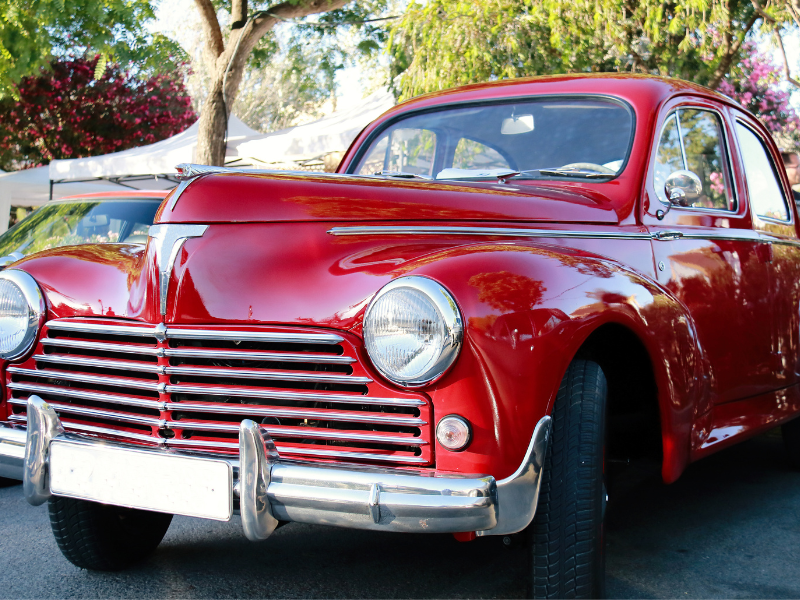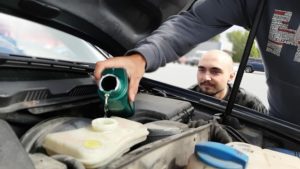You’ve been browsing our blog for a while and picked up some good tips on caring for your car. You have even put together a checklist for the work you’ll need to fix your classic car. However, you’re still getting ready to buy, and you must choose the perfect classic car. Let’s review How to Choose the Perfect Classic Car for You.
Why the Right Car Matters
Your classic car is not just about the love of cars – though that is a big part of owning a classic car. Your classic car is also an investment of time and money, and you want to ensure that you have a car you’ll be proud to invest in and will love year after year. Before looking for your perfect classic car, here is one more checklist you should consider.
Determine the Purpose of Your Classic Car
You have the why of owning a classic car – you love cars. What is the purpose of your classic car? Joining the local auto shows, going on the national show circuit, having a particular car for joyrides, and having a daily driver are all very different purposes that will affect your decision of what car to choose. For a daily driver, you’ll want a practical vehicle. A joyrider should be fun and fit the kinds of joyrides you plan to embark on. Meanwhile, if you want to take part in classic car shows …
Attend Classic Car Shows
Attending car shows is the best way to learn about classic cars, see what’s available, and get advice on what car you should choose. If you want to take part in shows, you’ll see first-hand what kinds of cars do well in shows and can get a sense of what types of cars people would like to see more. You can also talk to collectors about their choices and advice for joyriders and daily drivers. You can also learn from collectors what cars present the most challenges in obtaining and restoring and decide if you’re ready for that kind of challenge.
As you attend shows and talk to collectors, you should get an idea of what kind of classic car you want. Begin making a list for yourself of questions you should ask about your specific car(s) and ask collectors for input.

Get Involved with a Classic Car Club
Car shows are just some of the places you can network with and learn from other classic car collectors. Get involved with a classic car club. They can provide valuable information about classic cars and first-hand advice about the maintenance and upkeep of different makes and models. Clubs are also an excellent way to get involved in local, regional, and national car shows.
Like with the shows, you’ll continue to whittle down your list of potential classic cars. Keep thinking about the questions you would ask a seller about your specific car(s), and continue getting advice from other collectors you meet through the car club.
How to Choose the Perfect Classic Car – Talk to Your Insurance Company & County Tag Office
At this point in your checklist, you should be able to create a short list of classic cars you’re interested in purchasing. Now is the time to talk to your insurance company. Find out from them what their requirements are for insuring classic cars. Remember, what an insurance company considers classic is different from what car clubs and shows consider classic. They and your county may also have additional requirements for vehicles if you intend to be a joyrider or daily driver. As questions, get an estimate or range of insurance and registration costs so you can also prepare for those expenses.
How to Choose the Perfect Classic Car – Create a List of Questions for the Seller
Now it’s time to create a list of questions you’ll ask sellers before you decide to test drive a vehicle. Because you’ve been talking to collectors at car shows and the car club, you’ll have a list of vehicle-specific questions you should ask a seller. In addition to those questions, you should have a few general questions that you request as well, including,
- Do you have the car’s title?
- How many owners has the car had?
- Do you have maintenance records for the vehicle?
- How often do you or have you driven the car?
- Has the car had any modifications made?
- Are there any maintenance issues, past or present?
- Why are you selling the vehicle?
These are simple questions that any reputable seller should be willing and able to answer for you. If you get unreasonable pushback or the seller needs to be more responsive, move on to the next seller. While it’s reasonable that people only sometimes maintain good maintenance records, they should be able to tell you simple things like how often they change oil, get tune-ups, and rotate tires. They should also be able to answer questions about problems with the car and modifications. If they dodge questions or state that they don’t know, you’re taking on more risk than you should, especially for a first-time classic car purchase.
Test Drive the Car and Get a Professional Inspection
Once you’re happy with a seller and have a selection in mind, get a professional inspection done on the vehicle and take it for a test drive. Make sure the car drives well, and you can see yourself in this vehicle for years. Also, listen out for signs that the car may have trouble (listen for the knock, whines, and dings that indicate problems) and make a note of anything the inspector finds, and decide if you can add those fixes to your investment costs.
How to Choose the Perfect Classic Car – Line Up a Mechanic & Get Final Insurance and Registration Costs
At this point, you should know the car you want. Make sure you can line up a good mechanic for regular maintenance and any final restoration work the vehicle may need. You should also contact your insurance company and tag office to get quotes and costs for insurance and registration. If you can ensure regular service for the vehicle and are comfortable with the insurance and registration costs, you’re ready to move forward.
Congratulations! It’s a classic car!
Are You Buying or Restoring a Classic Car in Huntingdon Valley, PA?
If you’re buying or restoring a classic or want a new paint job for your current vehicle, contact us to schedule an appointment.




